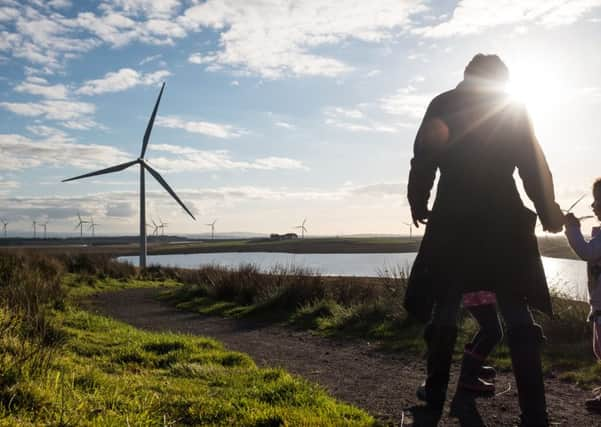David Cole-Hamilton: Emissions cut is win-win


Analysis of polar ice cores shows warming events occur approximately every 100,000 years. After a while the earth cools again. Carbon dioxide levels follow a similar pattern but, since the rise in CO2 occurs after the onset of the rise in temperature, it’s not the cause. Temperature cycles can be explained, as Rev. Dr. Cameron points out, by changes in the tilt of the earth and distance from the sun. But the situation now is different.
We have been in a warm period for about 12,500 years but since 1900 the temperature has started an unprecedented rise, 2016 being the warmest year recorded and 14 of the hottest years since 1900 being since 2000.
Advertisement
Hide AdAdvertisement
Hide AdOn this occasion, CO2 in the atmosphere started to rise before the temperature. The rise (25 per cent) is attributable to burning fossil fuels and CO2 is known to be one the gases, along with water and methane, which causes most of the greenhouse effect. This is why most scientists attribute enhanced global warming to man-made emissions.
Already sea levels are rising, Pacific islands being abandoned, larger numbers of more destructive storms and ice caps receding. Further warming could lead to loss of rainfall in the breadbaskets of the world, the spread of tropical diseases and, most threatening of all, the release of huge amounts of methane.
It is estimated that between 500 and 1000 gigatonnes of methane are tied up in ice, mainly under the oceans. Some calculations suggest a 3C rise could lead to 85 per cent being released. This is equivalent to all the CO2 released since 1900. Since methane is 20 times more potent at causing global warming, this could be catastrophic.
What of the suggestion that we are tipping into an ice age? This will undoubtedly happen. But the four warm periods in the last 500,000 years, have lasted around 40,000, 24,000, 12,000 and 25,000 years. The onset of our current warm spell was about 12,500 years ago – we could be close to the drop off or we could have 10,000 years. So what should we do?
Suppose we take steps now to reduce emissions and develop alternative renewable energy sources. If climate change is a myth, we shall have done no harm but developed some new and interesting technologies. If it is real, we shall have preserved this earth in a state fit for our children and those after them.
If we do nothing, and there are no negative effects, then we shall have done no harm except leave future generations with few carbon-based resources. However, if even some predictions are right, the planet will become much more difficult to inhabit.
The choice between one option that gives positive outcomes and another that gives negative ones is obvious.
David Cole-Hamilton, President, European Association for Chemical and Molecular Sciences and Emeritus Professor of Chemistry, University of St. Andrews.